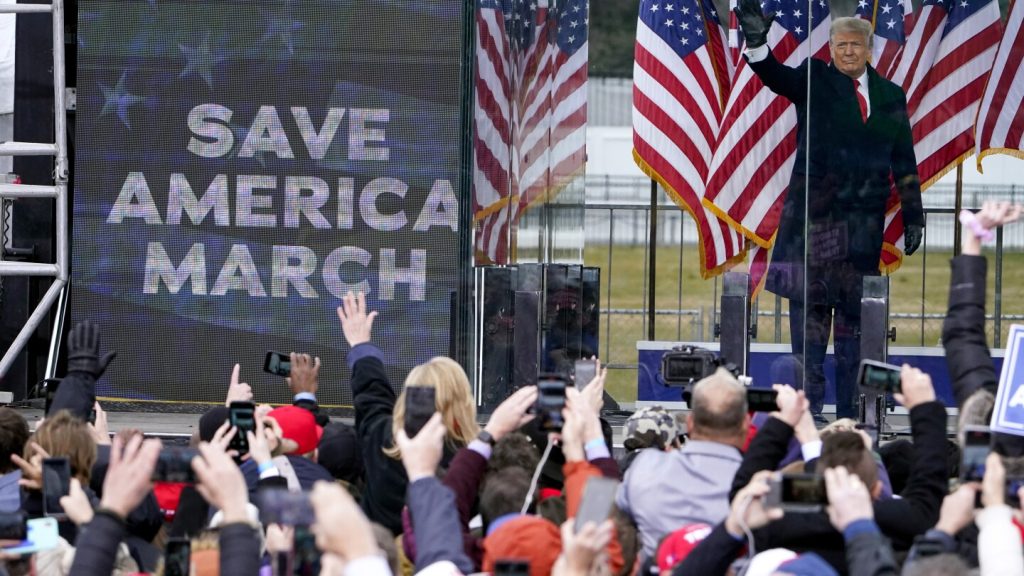WASHINGTON (AP) — The Supreme Court is set to hear arguments in a case on Thursday in which former President Donald Trump is accused of plotting to overturn the results of the 2020 presidential election. This presents a historic opportunity for the justices to determine whether former presidents can be prosecuted for official acts conducted while in office. The court session, titled Donald J. Trump vs. United States of America, will begin at 10 a.m. EDT and could last for over two hours. The proceedings will be livestreamed on various platforms, including C-SPAN and the Supreme Court’s website.
One central aspect that is likely to be discussed during the arguments is the impeachment process and its connection to criminal prosecution. Trump’s defense team claims that only a former president who has been impeached and convicted by the Senate can face criminal charges. Trump himself was impeached for his alleged involvement in the events leading up to the Capitol riot on Jan. 6, 2021, but he was subsequently acquitted by the Senate in 2021. Trump’s lawyers cite a provision in the Constitution known as the Impeachment Judgment Clause to support their argument, which states that an officeholder convicted by the Senate can still be subject to indictment and trial in court.
During the court session, there is expected to be a significant focus on the 1982 case Nixon v. Fitzgerald, where the Supreme Court ruled that a former president cannot be sued for their official actions while in office. This ruling granted Nixon absolute immunity from civil lawsuits but did not extend that protection to criminal liability. Trump’s defense team argues that this case is relevant to his situation. Special counsel Jack Smith, on the other hand, is likely to bring up a separate Nixon case from 1974, which required the president to release incriminating tapes. Additionally, the fact that Nixon accepted a pardon is seen as an acknowledgment of his potential prosecution.
The upcoming arguments may also involve hypothetical scenarios presented to the lawyers as a means of testing the extent of the immunity claimed by former presidents. Trump’s legal team has warned that allowing the prosecution in this case to proceed could set a precedent for charging other presidents for actions taken in office, such as ordering drone strikes or providing false information to Congress. Special counsel Smith’s team is expected to differentiate between actions that are considered as part of presidential duties, like ordering a drone strike during a war, and the personal acts Trump is accused of in this case, such as attempting to manipulate electors in battleground states.
Ultimately, this case before the Supreme Court has far-reaching implications for the accountability of former presidents and the limits of their immunity from prosecution. The debate over whether Trump can be charged for his actions during his presidency is a critical constitutional issue that the justices will decide upon. The arguments on Thursday are anticipated to delve into complex legal concepts and past precedent, shedding light on the future of presidential accountability in the United States. Additionally, the livestream of the proceedings will offer the public a chance to witness this historic moment in the nation’s legal history.


